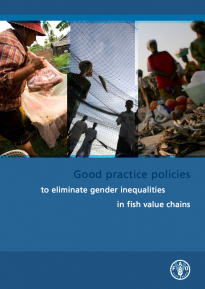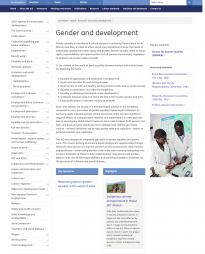Equitable Social and Gender Environment for Refrigerated Road Transport
Gender is important because men and women often perform different tasks within fish value chains, and have different assets, skills, experience, knowledge and decision-making roles. However, the invisibility of women’s roles in official fisheries and aquaculture statistics, coupled with the negative impacts of gender-blind policies, leave women facing discrimination and marginalization within the sector. Modern small-scale fisheries using improved technologies (such as motor engines, modern navigation and communication equipment, and processing and cold storage facilities) and meeting international food safety standards can produce high-quality, high-value products for export markets. Attention needs to be given to equal access to productivity-enhancing innovations that improve the overall productivity and quality of products.
In terms of investment, the cold chain, including transport, offers business opportunities for both women and men. Transport often provides the vital link between production and market. Non gender bias policies and implementation processes are required to give equal access to productive inputs such as transport, credit, skills and knowledge, and market access so that both men and women are able to perform optimally in terms of producing and selling quality, food safe products and minimize food loss and waste (FLW).
Key Publications
Good Practice Policies to Eliminate Gender Inequalities in Fish Value Chains This publication highlights key gender inequalities in fisheries and aquaculture value chains that lead to underperformance by women, and proposes good practice policies that can influence increases in production and processing of high-quality fish. | |
Overview of role of gender in the work place and an introduction to an integrated approach to gender equality and decent work with a link to further resources. | |
A Guide to Gender Sensitive Microfinance Included is guidance for those involved in microfinance programmes to ensure consideration of socio-economic and gender issues when developing microfinance programmes, designing national policies, and disaggregating microfinance markets to learn more about clients. |
More Resources
More Resources
31 October 2023
01 January 2016














